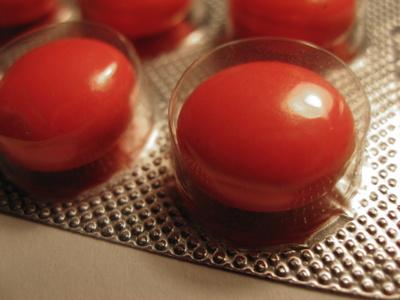Nonprescription diet pills certainly aren’t lacking when it comes to allure. Slick advertising techniques and impressive packaging are designed to have you believe that somewhere on the shelves of your local drug store a magic bullet exists for weight loss. The truth about most over-the-counter diet pills isn’t too impressive, medical experts at the Mayo Clinic say. Many diet pills don’t have the science behind them to back up marketing claims–and some may be downright dangerous.
Temptation at the Drug Store
The first thing you should know about nonprescription diet pills is that they don’t go through the same rigorous approval process by the U.S. Food and Drug Administration as do prescription weight-loss medications, which must meet certain standards of safety and effectiveness after extensive laboratory testing and clinical trials. The only thing the FDA can do after a diet pill goes on the market is make sure that the product is safe to use and issue a recall on those that are dangerous. As for natural diet aids? You’ve heard the claims: Green tea turns your body into a fat-burning machine or Hoodia gives you the will to forgo the Ben & Jerry’s by decreasing your appetite. But Mayo Clinic experts suggest that even these herbals, which sound like a safer bet, might not be safe at all–nor are they guaranteed to give you the results you expect.
What Works
In terms of effectiveness, the Mayo Clinic gives the over-the-counter diet aid Alli the thumbs-up. Alli is simply a weaker version of the prescription drug orlistat, used to address obesity, and it’s approved for use by people at least 18 years of age. However, Alli won’t give you stunning results; Mayo Clinic doctor Donald Hensrud indicates you can expect to lose about three more pounds a year than you would had you simply exercised and dieted. Alli is, in fact, meant to be part of a weight-loss system that takes caloric intake and physical activity into account. Alli does come with potential safety concerns; starting in 2009, the FDA began investigating reports of serious liver injury associated with Alli and it is conducting a safety review.
What Might Work
Balancing safety against effectiveness is challenging, given what little clinical evidence is known about how OTC diet pills work–or if they do. The Mayo Clinic gives a “possibly safe” rating to diet pills containing chitosan, green tea extract and conjugated linoleic acid, or CLA. The first two products also have insufficient evidence to prove that they help you lose weight, while CLA could possibly help you lose weight, according to Mayo Clinic data. Diet pills containing guar gum probably won’t hurt you–but they probably won’t help much either, according to the clinic. As for Hoodia, there’s no evidence to indicate that it works for weight loss either, the clinic says, nor is its level of safety known.
Dangerously Addictive
It’s best if you pass some diet pills by entirely. The FDA has banned diet pills containing ephedra and country mallow (heartleaf), and products with bitter orange are also on the ropes. In 2006, the FDA first issued a warning about the dangers of Brazilian diet pills, which can be ordered online. Despite these warnings, consumers paid no heed, and these pills remain more popular than ever. The problem was that, in addition to “all natural” herbal ingredients, the pills contained a nasty, highly addictive cocktail of amphetamines, tranquilizers and antidepressants. According to the National Institutes of Health, many consumers who became to hooked on Brazilian diet pills experienced psychiatric difficulties, financial problems and intense withdrawal symptoms.
Expert Advice
Only your doctor can help you find the diet pill that works best, Mayo Clinic experts say. It’s especially important to have a heart-to-heart if you have a medical condition or take prescription drugs, as taking diet pills can result in undesirable side effects. Even if you take dietary or herbal supplements, it can be dodgy to add a diet pill into the mix. The Mayo Clinic points out that even if you use diet pills, your results aren’t likely to be long-lived unless you make permanent modifications to your lifestyle. This includes trimming down your food portions, counting calories and getting regular physical activity.
Photo Credit
- pills image by Bosko Martinovic from Fotolia.com





